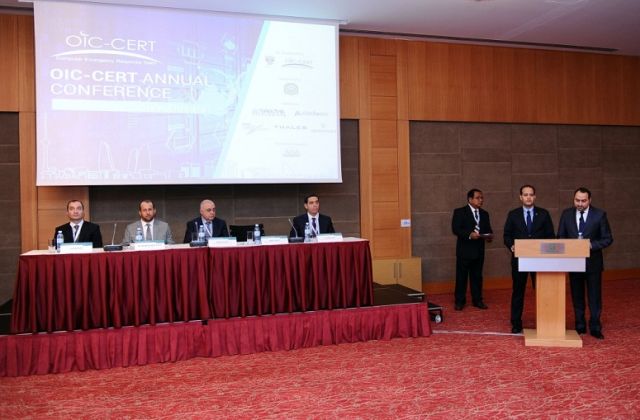
by admin | May 25, 2021 | Business Summit, Corporate, Corporate Governance, Events, News, Social Round-up
 Chennai : Speakers at the AVAR 2018 international cyber security conference will discuss advanced persistent targeted attacks on governments and industries to security for smart cars in the Internet of Things (IoT), said a city-based cyber security major.
Chennai : Speakers at the AVAR 2018 international cyber security conference will discuss advanced persistent targeted attacks on governments and industries to security for smart cars in the Internet of Things (IoT), said a city-based cyber security major.
India’s K7 Computing will host and organise the three-day conference in association with CERT-In (India’s Computer Emergency Response Team), the company said in a statement issued here on Friday.
It said the 21st Association of the anti-Virus Asia Researchers International Conference, popularly known as AVAR, will be held between November 28 to 30 in Goa.
The theme this year will be “The Dynamic Security Ecosystem”.
AVAR 2018 will provide a platform for 67 speakers from 25 different international security companies to present 41 cutting-edge cybersecurity topics.
“We strongly believe in spreading awareness on the need for wide adoption of cybersecurity solutions to protect data and devices,” J. Kesavardhanan, MD and CEO, K7 Computing, said in the statement.
“AVAR gives us a great opportunity to drive our cybersecurity mandate, bringing the industry together to discuss and develop an advanced roadmap to curb cyber threats.”
Sanjay Bahl, Director General, CERT-In, said: “AVAR is an important technical platform to bring the global cybersecurity industry together to discuss and brainstorm on the technical way forward to deal with the evolving threat landscape.”
—IANS

by admin | May 25, 2021 | Branding, Business Summit, Events, Markets, Online Marketing, Technology
 By Rajnish Singh,
By Rajnish Singh,
Siem Reap (Cambodia) : As the political narrative in India appears to be tilting in favour of data localisation, Russia-based global cybersecurity firm Kaspersky Lab said it was willing to “adopt and comply” with Indias proposed requirement to store data generated in the country within its borders.
“The data protection bill is not released yet in India. Once this (data localisation) requirement comes out, we need to adopt and we want to comply,” Kaspersky Lab’s Managing Director Stephan Neumeier told IANS on the sidelines of the firm’s 4th Asia Pacific (APAC) cybersecurity annual summit here recently.
Goals set in the Draft National Digital Communications Policy 2018, along with various Indian government notifications and guidelines such as the Reserve Bank of India’s notification on Payment Data Storage 2018, and the guidelines for government departments for contractual terms related to Cloud Storage 2017 also show the government’s focus on data localisation.
The rationale behind such proposals has been attributed to various factors, such as: Securing citizens’ data, and ensuring data privacy, data sovereignty, national security, and economic development of the country.
The extensive data collection by technology companies, due to their unfettered access and control of user-data, has allowed them to freely process and monetise Indian users’ data outside the country. This has raised data protection and privacy concerns.
Neumeier said he and other Kaspersky members had discussed the matter with India’s Computer Emergency Response Team (CERT) chief Gulshan Rai in September.
Kaspersky Lab, he said, saw significant support from the Indian government and the demand and interest on “our technology together” was open there.
The talks of data localisation in India could also influence where in Asia Pacific the company sets up its “Trasparency Centre” — where data from the region can be stored and processed.
While India is not ideally located for the company’s Asia Pacific Transparency Centre, Neumeier asserted that Kaspersky Lab was ready to find solution for India’s data localisation requirements when it comes.
“Because, if we open a Transparency Centre in India, we will also open a data centre there. And with that, we would have the capabilities to store Indian data in India,” Neumeier said.
Noting that Kaspersky was set to open its first and only Transparency Centre in Zurich, Switzerland, in November, Neumeier said the firm was actively looking at Asia Pacific for a similar set-up and that it had discussed the issue with the Indian government.
“We have all the support that we can imagine from the Indian government. However, we need to look into specific requirements before we make a decision where we are going to open that facility,” Neumeier said.
“One is obviously location. We want to fly in people there. It needs to provide easy accessibility. So, India is probably, for Asia Pacific, not a perfect place because it is not very, very central.”
However, he said, all the other “boxes” like “growth in market, access to good talent are very well checked”.
“The skills and capabilities available in India, you won’t find in many countries in Asia Pacific. People are very highly qualified and they really understand their stuff. So, that is the big check.”
Asked about Kaspersky’s business plan in India, Neumeier said the country is one of the “focus markets in Asia Pacific because of its large population”.
“We see massive investment in the manufacturing area in India as it is already becoming more and more a manufacturing powerhouse. A lot of commercial business is already on the growth path and will be growing in future. So, demand for cybersecurity technology is obviously rising.”
With its “Digital India” initiative for increased digitisation, Cybersecurity could become a major concern for the Indian government.
Reported attacks on Indian websites have increased nearly five times in the past four years. According to government data, more than 700 government websites that are hosted under “gov.in” and “nic.in” domains have been hacked by cyber criminals since 2012.
As per the information reported to and tracked by CERT-In, a total number of 44,679; 49,455; 50,362 and 40,054 cyber security incidents were observed during the year 2014, 2015, 2016 and 2017 (till November), respectively.
(Rajnish Singh was in Siem Reap on an invitation by Kaspersky Lab. He can be contacted at rajnish.s@ians.in)
—IANS

by admin | May 25, 2021 | Muslim World
 Tel Aviv : Israel has developed a cybersecurity center to protect its railway system, media reports said on Sunday.
Tel Aviv : Israel has developed a cybersecurity center to protect its railway system, media reports said on Sunday.
The security center is created by Rafael, an Israeli government-owned defence technology company, Xinhua reported, quoting local media reports.
The company will provide Israel Railways corporation with a cybersecurity operations center (CSOC) located in the city of Lod in central Israel.
The CSOC, worth $8.25 million, will be operated by Israel Railways’ cyber unit.
According to data of the country’s rail authorities, about 10 million attempts to penetrate the train network are blocked each month, including some aimed at collecting vital information, and inserting viruses and malware.
The CSOC will help monitor, control and protect the railway systems, as well as detect electronic penetration and attack attempts targeting the company.
—IANS

by admin | May 25, 2021 | Business Summit, Events, Muslim World
 Baku : The Ninth Annual International Conference of the Organization of Islamic Cooperation-Computer Emergency Response Team (OIC-CERT) started in Baku, Azerbaijan, on Tuesday.
Baku : The Ninth Annual International Conference of the Organization of Islamic Cooperation-Computer Emergency Response Team (OIC-CERT) started in Baku, Azerbaijan, on Tuesday.
The conference is organized the Azerbaijan’s Special State Protection Service, in collaboration with local partners Delta Telecom LTD and Azinfosec, and under the auspices of foreign partners May Cyber Technology, THALES and Videntifier companies. The event’s academic partner is ADA University in Baku.
Representatives from 21 OIC member countries and 11 non-member countries are attending the conference, AZERTAC News reported.
Addressing the conference, Mursal Valiyev, deputy head of Azerbaijan`s Special State Protection Service and head of Special Communication and Information Security State Agency, stressed the importance of combined efforts and exchange of experience in achieving greater success in combating global and regional cyber threats. He noted that as a member of the OIC-CERT Board, Azerbaijan CERT properly fulfills its responsibilities in the field of cybersecurity.
OIC-CERT Chairman Eng. Badar Ali Said Al Salehi and Director of the OIC Department of Information Technology Wajdi Alquliti were among those who addressed the conference.
The four-day conference is a continuous initiative by the OIC-CERT to enhance cybersecurity and raise awareness through international cooperation among the members and other information security organizations. This event also offers possible partnerships and collaboration in cybersecurity in order to maintain resilience in the cyberspace. It also provides an information sharing platform on cybersecurity issues, enhancement of members’ effectiveness and efficiency through the improvement of the technical and administrative capabilities in incident handling, and a channel to discuss strategic directions and future challenges.
The conference will also feature workshops on National Frameworks for Cybersecurity Education and Utilizing Endpoint Analysis Data on Big Data Platforms to Discover Threats Against Large-Scale Enterprises.
—AB/OIC-UNA

 Chennai : Speakers at the AVAR 2018 international cyber security conference will discuss advanced persistent targeted attacks on governments and industries to security for smart cars in the Internet of Things (IoT), said a city-based cyber security major.
Chennai : Speakers at the AVAR 2018 international cyber security conference will discuss advanced persistent targeted attacks on governments and industries to security for smart cars in the Internet of Things (IoT), said a city-based cyber security major.


